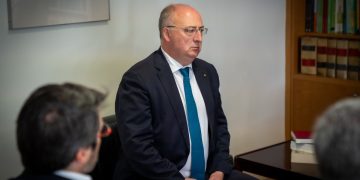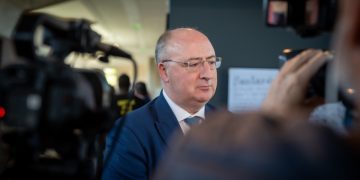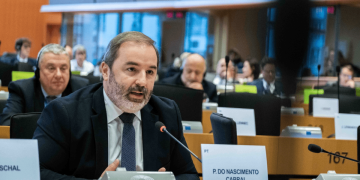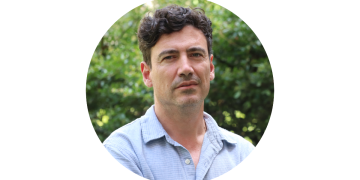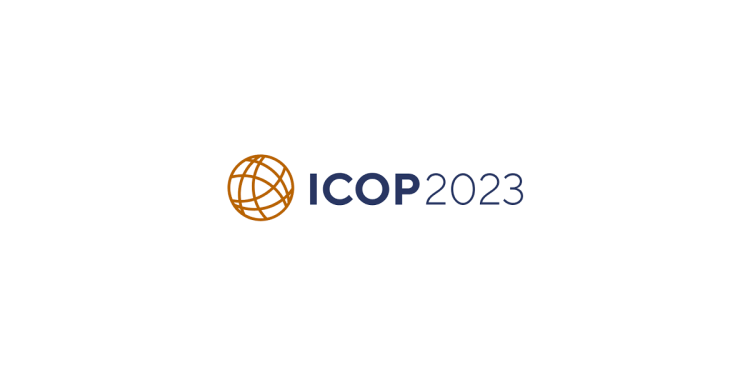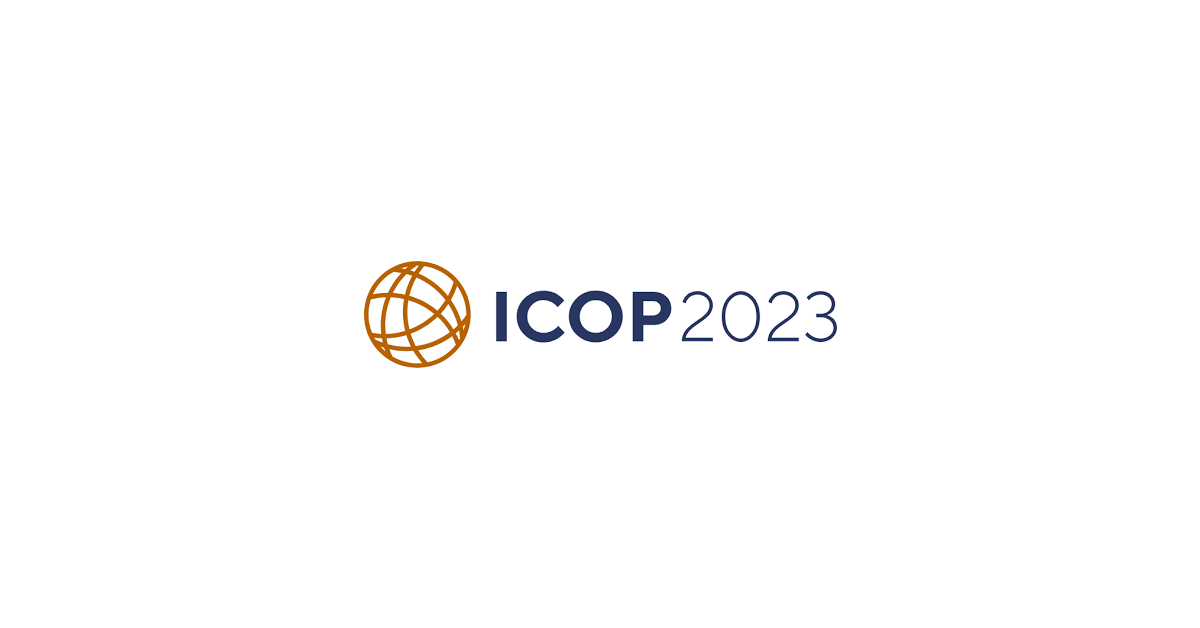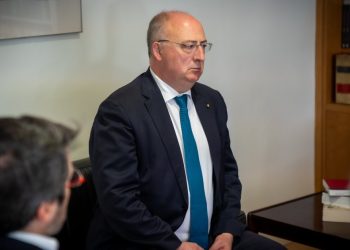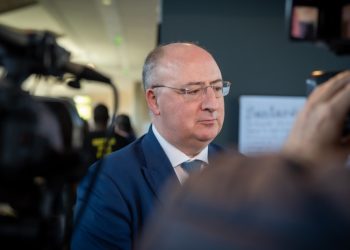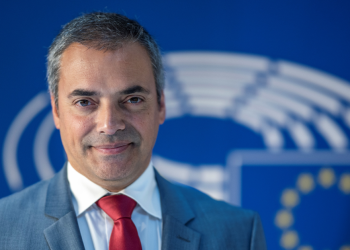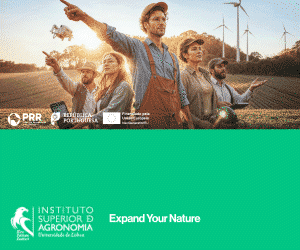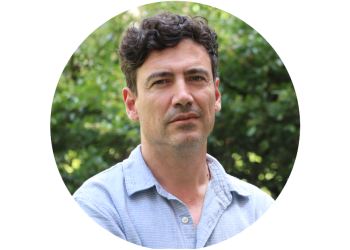This year’s ICOP conference – the 17th International Congress of Fruit and Vegetable Producer Organisations – was held in a Mediterranean atmosphere. The organisers chose the Barceló Cabo de Gata Hotel in the agriculturally dominated area of Almería as the venue. From November 22nd to 24th, about 150 representatives of the sector from 17 countries came together here to exchange expertise and discuss hot topics. Excursions to the region followed on day three. This year’s event was once again organised by the Austrian consulting company gfa- consulting gmbh, in cooperation with the Spanish partner on site – Coexphal.
The amount of challenges that not only Almería but Europe as a whole faces in agricultural production were already emphasised in the opening speeches by gfa-consulting Managing Director Wolfgang Braunstein and Juan Antonio González Real from Coexphal on Day 1 and then dealt with in greater depth in the following thematic blocks. A total of 18 speakers took the floor over the two days of the conference.
“We have to fulfil ‘more’ social expectations with fewer available resources!” Luc Vanoirbeek from Copa-Cogeca summed up the prevailing dilemma in the European fruit and vegetable sector in his presentation. This dilemma was then repeatedly recognised in the following presentations. Jan van der Blom from Coexphal gave an insight into the changing challenges in horticulture in Almería over the last fifty years. Simona Caselli from AREFLH addressed the direct consequences of climate change with heat, drought, flood disasters …, which in particular also characterised the year 2023, as well as increasingly restrictive political framework conditions. At the same time, the EU Plant Health Regulation and the EU Packaging Regulation were being voted on in the EU Parliament, which was followed with great interest by many of those present. Juan Carlos Pérez Mesa from the University of Almería focussed in particular on the Almería region with regard to these topics. Raquel Aguado Munoz from the Spanish association for lightweight packaging FEDEMCO provided insights into practical solutions for the highly flexible requirements of the fruit and vegetable sector in connection with the packaging issue, which is highly relevant to the industry.
Day 2 of the conference was initially focussed on the new period of the Common Agricultural Policy (CAP), which is already in its first year of implementation in 2023. The new period 2023-2027 is accompanied by many changes to the framework conditions for the fruit and vegetable sector, especially in connection with the funding opportunities via the so-called Operational Programme (OP). In the course of this, the organiser was keen to present different perspectives on the implementation of the different national strategic plans for the new CAP across Europe.
Kristine Bori from the European Commission was joined by Adrián Torrellas Tomé from the Spanish Ministry of Agriculture, Manuel Alías Cantón from the Rural Development Fund (also Spain) and Kerstin Edelmann from gfa-consulting (AT). Bori gave a complex overview of the possibilities of the various strategies in the member states from the Commission’s perspective. “The term ‘common market policy’ contains the word ‘common’,” emphasised Bori in the subsequent panel discussion. “The joint action of all those involved in the implementation of agricultural policy, at EU level, at country level and, above all, at the level of agricultural representatives, is fundamental to success!”
The two aforementioned representatives of the Spanish industry provided an insight into the Spanish implementation of the Commission’s rules at authority level. Finally, Kerstin Edelmann, senior consultant at gfa-consulting gmbh, rounded off the block of topics with a presentation. With a focus on Austria and Germany, specific challenges and experiences in the practical application for EU funding for F&V producer organisations were highlighted. “The new CAP and the completely different national implementations of the strategies were accompanied by many unexpected challenges for producer organisations when applying for OPs!” said Edelmann. In the context of a “best-case scenario”, she then also emphasised the idea of cooperation between all parties involved in the course of OP approval, echoing Kristine Bori’s motto “Together”.
As always at the ICOP, there was also room for innovation and trends in 2023. The aforementioned challenges in the production of fruit and vegetables were contrasted with proposed solutions in the second thematic block. Kris de Smet from Koppert spoke about biological pest control. Rosa Altisent Rosell from the IRTA Institute for Food Research pointed out ways to achieve resilient agriculture and Antonio Villarroel from the Spanish Association of Plant Breeders ANOVE discussed the possibilities of new genomics techniques for the European F&V sector in his presentation. Alice Lefort and Carlota Contreras Tamayo, product managers at Agri-PV (BayWa r.e.), presented technical innovations using photovoltaics in agriculture. José Luis Molina Zamora from Hispatec agrointeligencia (ES) focussed in his presentation on the possibilities of data agreement in agriculture through appropriate IT. The final presentation by Juan Jesús Lara Cruz from the Spanish producer organisation CASI prepared the participants for the excursions on the last day.
On the one hand, these excursions led to CASI itself, the largest PO for tomatoes in Spain with a production volume of over 230 million kilos of tomatoes per year, which are produced on an area of 2,000 hectares. On the other hand, the participants had the opportunity to experience the use of microalgae in practice at the research centre of the University of Almería. The third stop on the excursion was a visit to the Vicasol cooperative, which produces fruit and vegetables and exports over 240 million tonnes of them to 34 countries worldwide.
“The industry is facing challenges in many areas. The changing political framework conditions, external circumstances such as climate change and stricter requirements in terms of sustainability and the associated changes in production circumstances, or the declining attractiveness of agriculture for the next generation are just a few of them. We are all ready to face these challenges! However, it is important that the F&V organisations are given the appropriate tools to be able to produce fruit and vegetables successfully even under the worsening conditions! Fruit and vegetables are worth being valued more,” says gfa Managing Director Wolfgang Braunstein, summarising the ICOP 2023.
Next year’s Conference will take place in November 2024.
Fonte: ICOP 2023

